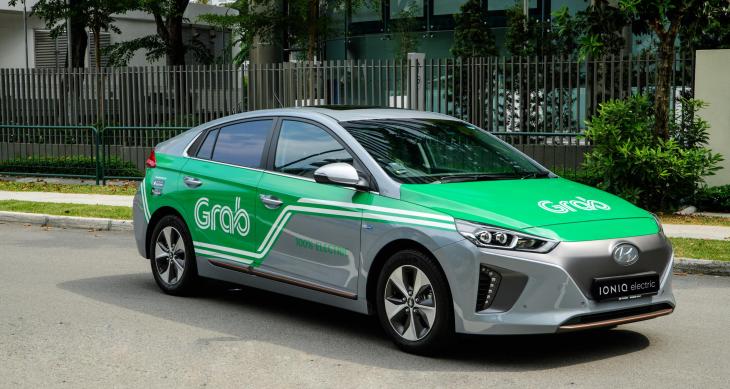Singapore ride-hailing unicorn Grab has partnered with South Korean automobile manufacturer Hyundai Motors and motorcycle manufacturers Gesits and Astra Honda Motor to launch its electric vehicle (EV) pilot project roadmap in Indonesia aimed at developing a more sustainable and environmentally friendly mobility ecosystem in the country by spurring the adoption of two and four-wheeled electric vehicles.
The pilot project is also supported by the Indonesian government, and the initial pilot will take place in the Indonesian capital of Jakarta with a fleet of 20 of Hyundai’s Ioniq EVs being available for Grab’s drivers in early 2020. According to Hyundai, the Ioniq EVs can be almost fully charged in just 60 minutes and have a traveling mileage of 270 kilometers (167 miles) before needing to be recharged.
The initiative by Grab to introduce EVs into its ride-hailing ecosystem comes in the wake of the Indonesian government’s commitment of increasing the number of electric vehicles plying the country’s roads to 2 million by 2025 with the aim of reducing motor vehicle pollution and developing a more sustainable transportation network.
Besides the support from the Indonesian government, it is understood that Softbank has also made an investment of US$2 billion into Grab in July this year with the purpose of building and developing a sustainable, environmentally friendly next-generation transport network powered by an electric vehicle ecosystem. Additionally, Grab has signed a deal with electricity provider Perusahaan Listrik Negara to collaborate in the development of electric vehicle charging stations in the country to facilitate the usage of EVs on Indonesia’s roads and highways.
Other than Hyundai’s four-wheel Ioniq EVs, Grab is also introducing electric vehicle bikes into its mobility ecosystem as part of its EV pilot roadmap. It has established strategic partnerships with Indonesia’s Gesits and Astra Honda Motor to launch two-wheel EVs in the city of Jakarta for its riders to use for ride-hailing and delivery services.
According to the president of Grab Indonesia, Ridzki Kramadibrata, the strategic partnerships formed with Hyundai Motors, Gesits, Astra Honda Motor, and the Indonesian government shows the company’s dedication to building and developing a high-grade digital infrastructure for the country that facilitates and accelerates the growth of an electric vehicle-powered next-generation transport network.
Ridzki added that Grab’s current EV pilot project and roadmap will help the company to further refine and enhance its mobility and transport solutions so that better cost-efficiencies can be achieved, which can encourage more people in Indonesia and across Southeast Asia to start using electric vehicles.
Minister Luhut Binsar Pandjaitan spoke on behalf of the Indonesian government, saying that Grab’s EV ecosystem roadmap perfectly complements the country’s current objective of pushing for a more sustainable and eco-friendly transport network, as well as accelerating the country’s EV industry.
For this, the government is appreciative of Grab’s efforts to improve and advance Indonesia’s digital infrastructure. Luhut added that the company’s pilot project will also help to address the country’s unhealthy air conditions by reducing the number of pollution-causing motor vehicles on its roads and highways.
Southeast Asia’s ride-hailing unicorn Grab will continue to pursue the development of more sustainable EV-based next-generation transportation networks for the region’s countries through partnerships and collaborations with government bodies, automobile manufacturers and electricity providers.
With the support and cooperation of the various stakeholders in the mobility ecosystem, the ride-hailing unicorn looks forward to innovating and developing more mobility solutions for a more environmentally friendly and sustainable Southeast Asia.






Leave a Reply